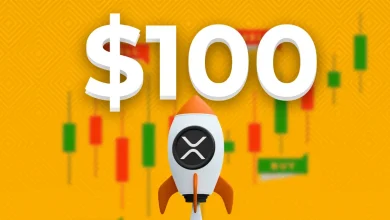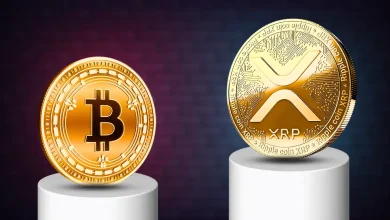
Ripple leaders outline long-term XRPL upgrades as DeFi growth pushes programmability forward.
XRPL staking debate grows as developers explore incentives, governance, and fee redesigns.
Community reacts to proposed XRPL changes, balancing innovation with simplicity and fairness.
Ripple CTO David Schwartz and RippleX researcher J. Ayo Akinyele have shared new updates on how the XRP Ledger (XRPL) could evolve in the coming years. Their comments show that developers are now focusing on long-term changes to the network, especially as DeFi usage grows and programmability moves closer to becoming a built-in feature.
XRP’s Expanding Role in Finance
Both Schwartz and Akinyele highlight how much the XRPL has evolved since its launch in 2012. It started as a network built for fast, low-cost payments, but today it has become a key layer for broader financial use. XRP now helps settle tokenized assets, provides liquidity across markets, and enables instant value transfer between different financial systems.
Akinyele notes that XRP is also being prepared for advanced institutional use cases, including asset-backed digital Treasury products and new types of digital ETFs. The launch of the first XRP ETF by Canary is a major step and shows growing interest from institutions.
XRP is also gaining visibility in the DeFi space. Projects like Flare, Axelar, Doppler, and MoreMarkets have already integrated XRP, showing that the asset is becoming more useful across both retail and institutional environments.
The Growing Talk Around Staking
As programmability becomes a more serious topic, Akinyele has introduced the idea of adding native staking to the XRPL. In simple terms, staking would allow users to lock XRP to support network functions and earn rewards.
- Also Read :
- XRP Price Prediction For November 19
- ,
However, this brings major design challenges. Today, the XRPL burns transaction fees instead of redistributing them. Validators build trust through performance, not financial stake. Adding staking would require creating a reward system, rethinking how fees flow through the network, and ensuring rewards stay fair and sustainable without slowing the system down.
Schwartz says his views on governance have evolved as XRP’s role in DeFi grows. With new features coming, he believes it is the right time to explore how the XRPL can expand carefully and responsibly.
Community Response
The idea of staking sparked mixed reactions. Some users argued that staking is usually linked to proof-of-stake blockchains and may not fit the XRPL’s design. Schwartz explained two advanced, long-term concepts: a two-layer validator model with incentives, and a system where transaction fees pay for zero-knowledge proofs to reduce the workload on nodes.
While many found the ideas interesting, others raised concerns about incentives, validator competition, and how fees would work. Some noted that the XRPL’s current fee-burning system avoids many of the issues seen in proof-of-stake networks.
Overall, the community showed interest in new features but also stressed the importance of protecting the simplicity, fairness, and efficiency that have defined the XRPL for more than a decade.
Never Miss a Beat in the Crypto World!
Stay ahead with breaking news, expert analysis, and real-time updates on the latest trends in Bitcoin, altcoins, DeFi, NFTs, and more.
FAQs
Developers are expanding XRPL’s programmability and DeFi support, aiming to serve both retail users and institutional finance needs.
XRP is now used for asset-backed products, digital ETFs, and cross-market liquidity, making it valuable to banks and financial institutions.
Native staking is being discussed, which could let users lock XRP to support network functions and earn rewards, but design challenges remain.
Trust with CoinPedia:
CoinPedia has been delivering accurate and timely cryptocurrency and blockchain updates since 2017. All content is created by our expert panel of analysts and journalists, following strict Editorial Guidelines based on E-E-A-T (Experience, Expertise, Authoritativeness, Trustworthiness). Every article is fact-checked against reputable sources to ensure accuracy, transparency, and reliability. Our review policy guarantees unbiased evaluations when recommending exchanges, platforms, or tools. We strive to provide timely updates about everything crypto & blockchain, right from startups to industry majors.
Investment Disclaimer:
All opinions and insights shared represent the author's own views on current market conditions. Please do your own research before making investment decisions. Neither the writer nor the publication assumes responsibility for your financial choices.
Sponsored and Advertisements:
Sponsored content and affiliate links may appear on our site. Advertisements are marked clearly, and our editorial content remains entirely independent from our ad partners.








